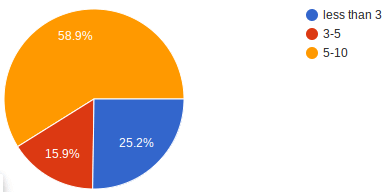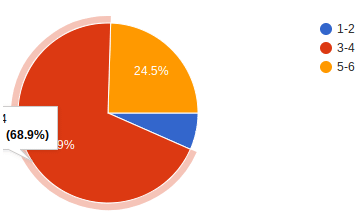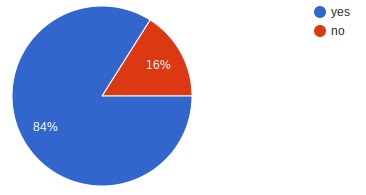[dropcap]H[/dropcap]ave you experienced what it is like to be a high school student in the society today? Well, it is a tough bust, high school students today are suffering from the pressure of grades, sports, sleep, social media, and keeping up with a social life while going to school an average of five days a week. Parents and teachers wonder why teenagers are so crabby or tired, but the answer is simple: no time for ourselves.
Today in schools the average amount of homework a typical high school student gets a night is estimated at 3.5 hours. That is divided out between 5-6 classes of which a student has to remember each throughout the day to understand and complete the homework. This is after a long day at school learning about what our homework will be later, when half of the class time could be used for finishing our homework.
Sports and Activities
A survey was proposed by the National Federation of State High School Associations in that, an average of 7.9 million students participate in some type of sport outside of school. There is only an estimate of 15.1 million students attending high schools in the U.S today, which means over half of students are not just “students”. Some high school’s are concluding, that if kids spend more time on sports, students spend less time on homework, which explains why they aren’t getting it done. Teachers are not allowed to conclude how we, the students, spend our time outside of school, because we deserve to have hobbies outside of being stuck in a brick building for the majority of our day. Debate.org has many opinions on if sports or studies are more enriching. Some said sports because it keeps students healthy, builds social skills, and lets bodies stay fit. Others opposing sports said it was because, studies it is impossible to get hurt in, and education gets future jobs. Both views have great supporting points to better teens.

Image by Pixabay
Obviously, sports are something that some students will continue in college and possibly make a career out of. It is highly encouraged to be in sports or clubs outside of the classroom, but how can students listen to what teachers or parents say when they get yelled at for having such busy schedules, making them question what they should be spending their time on.
Stress Levels in Teens
Recently, teachers and parents are starting to notice how high their students stress level is. The factor that is playing a part of the high-stress levels is an overload of one’s schedule as well as trying to figure out how to get everything done well enough to meet a coach or teachers expectations. If an assignment has a tough rubric, the student can see what must be done to achieve an A and must put in extra time to reach the highest level. Extending the deadlines could help busy teenagers, but that is never done unless a majority of the class is behind. This means teens need to contact teachers and ask for extensions, which is uncomfortable and even more stressful.
Relating back to the stress levels and consequences of highly affected students, here is a list from Galin Education, a site that helps with college prep and tutoring. This list describes the burnout point a student comes to when they feel overwhelmed or to the point of giving up.
- Self Harm
- Anxiety
- Substance abuse
- Cheating in academics
No parent, friend, or teacher wants to see this happen to a fellow student, which is why schools should really consider the safety of their students and their stress.

Image by Pexels
Teachers Need More Communication Skills to Better Their Students
Each side has the right to an opinion, and in the article, “5 Reasons Kids Need Homework and 5 Reasons They Don’t,” the pros and cons are listed for both from a neutral source.
Some benefits listed:
- Students can get closer with their teacher due to needing to talk about questions.
- Allows students to get test prep by learning from mistakes
- Parents and their kids can bond over doing homework
Some Hazards listed:
- Cheating percentages are higher if more homework is assigned when they do not have time to complete it.
- No time to relax
- Less time for families to spend together
It is understandable that students’ test percentages have gone up because of the learning made from the mistakes they made on the assignments. Cheating statistics are also going up, which proves kids care enough to get the homework done, but have to cheat because they are so overwhelmed and have a lack of time. Another “homework benefit” that does not make sense is that homework can make families closer. Families become closer doing things they enjoy doing. Amusement parks, dinners, shopping, and family game nights are what really bring families together. Spending all this time on homework even if it is with the family, won’t leave time for fun memories to be made.
How to Solve the Overwhelming Bundles of Homework
Teachers need to find the right balance. TIME compares homework to medications,” if you give little homework it will not have an effect, and giving too much could be deadly.” The correct balance is necessary for students to learn for a little while, as well as having free time at nights.
Life at Elk River High School
I purposed a survey to see what the students at Elk River high school, my school are spending their time on, here are the results of 107 surveys.
This is how many hours a week students spend on sports or e.c activities.
This is how many classes a night on average a student has homework in. 
This chart expresses if a teenager’s social life has been affected because of homework.
A Word From ERHS Students
Here are two anonymous students from Elk River High School who will share in more detail what their daily schedules look like throughout the week. The first student has a job and works 4-5 hours a night. Next she has to go home and complete 2-3 hours of homework then straight to bed at a late time. She also expressed that her nights at work include her worrying about what homework to spend her small amount of time on when she gets home. The next student is an athlete who spends 3 hours on average at practice each night. He only leaves time to do 1 hour of homework so he can take time to watch netflix and chill before he gets a long night of sleep. Both of these students have good grades even though they spend their time differently.
Consequently, the results were very predictable from the information that is on the internet already. The sad part of the survey is that a majority of students at my school answered that homework affects their social life. If the stats online did not prove teenagers are stressed and confused on what to spend their time on, this survey sure did express it, coming from peers that have valued opinions.
The Bottom Line
Teenagers are under a lot of pressure having to fit in time for friends, family, homework, sports, and sleeping. Homework should be slimmed down or allow us as students to get a majority of it done in class. Yes, I know homework helps us on tests, but being in school for half of our day is enough learning. Teenagers only have a little bit of time left to be free without paying bills and living alone with the same friends. We do not have much time to figure out what to be the rest of our lives so, let us live.
Featured image by: Pixabay




StudentBlogger
As a multi-sport athlete, with an extremely busy schedule, I can totally relate to your blog. When track starts up on Monday, I will have practice every day until 6, and then my other sport has practice from 7 to 10, leaving me only 15 minutes in between if you calculate in transportation time. When I get home somewhere between 10:45 and 11, all I want to do is shower and go to bed, but I have homework to finish. I get very small amounts of sleep, having to wake up at 5:30 to catch the bus. However, I have acknowledged that like Kira said, homework is a necessary evil, and have maintained a 3.7ish gpa. I do think that even though homework is needed in this society’s education systems, schedules are hard to manage with it, and I think all classes should be like Kantor’s, where there’s not necessarily deadlines. This really helps me in my busy life, and lets me still acquire a good grade. I really enjoyed your blog, and can totally relate. Thank you for sharing this with us!
Anonymous
Is there supposed to be a chart or something showing the survey statistics? I’m not seeing one…
MrKantor
Thank you for pointing this out! The problem should be fixed now.
MongolianThroatS1nger
I agree with your points. Homework can lead to stress and stress can lead to bad habits such as drugs and leaving your children like my dad, who left 12 years ago. I have a lot of homework all the time and it puts a lot of stress onto my working scapulas. I do a lot of homework every night and it is not fun and gets in the way of my throat singing practices. I need to train for the world championships in june.
-Throatsinger
Kira
I also believe that homework can be a lot of stress on our daily lives. However, I see it as a necessary evil because it does take a lot of time and effort and especially in classes ,like math for instance, require a lot of practice before an exam, which we get through homework. Despite that, homework is a lot for a teenager to handle when you add other things like relationships, sports, and jobs. I think that if more teachers at ERHS made more flexible homework schedules where you have many nights to complete more assignments would be most beneficial to our students here.